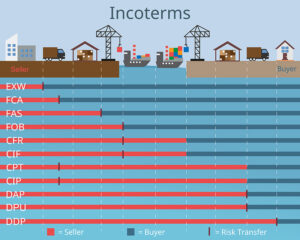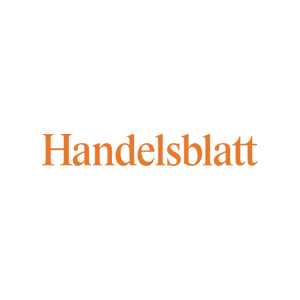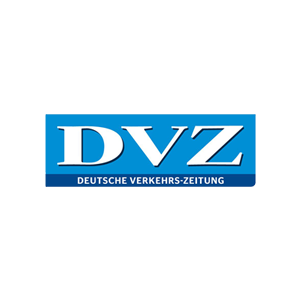 Incoterms® are globally recognized, uniform contractual clauses and delivery conditions that enable the parties to a sales contract to standardize processing in international, but also national, commercial transactions. The Incoterms® have the task of defining the distribution of costs, the distribution of risks and the duties of care between the contracting parties. The importance of the Incoterms® rules lies in the clarity of the mutual obligations gained through their use. This is because Incoterms® can be used to prevent misunderstandings and costly disputes, thus reducing the risk of legal complications for both parties to the contract. Legal problems such as the conclusion of the contract, the transfer of ownership, the handling of payments or the legal consequences of breaches of contract, on the other hand, are not regulated. The relevant provisions are those of the purchase contract or the law on which the respective contract is based.
Incoterms® are globally recognized, uniform contractual clauses and delivery conditions that enable the parties to a sales contract to standardize processing in international, but also national, commercial transactions. The Incoterms® have the task of defining the distribution of costs, the distribution of risks and the duties of care between the contracting parties. The importance of the Incoterms® rules lies in the clarity of the mutual obligations gained through their use. This is because Incoterms® can be used to prevent misunderstandings and costly disputes, thus reducing the risk of legal complications for both parties to the contract. Legal problems such as the conclusion of the contract, the transfer of ownership, the handling of payments or the legal consequences of breaches of contract, on the other hand, are not regulated. The relevant provisions are those of the purchase contract or the law on which the respective contract is based.
Definition Incoterms®
The term “Incoterms®” is an acronym that stands for “INternational COmmercial TERMS”. The Incoterms® were developed by the International Chamber of Commerce (“ICC“), which also holds the trademark rights to them. The term Incoterms® is thus a protected trademark of the International Chamber of Commerce, which is registered in several countries.
Since the rules were first published in 1936, the ICC has constantly maintained and developed them. To prepare companies for changing conditions and opportunities in global trade, the latest edition, Incoterms® 2020, came into force on January 1, 2020, and should serve as a reference in the future.
If no year is specified in the Incoterms®, the following shall apply:
- Incoterms® 2010 shall apply until December 31, 2019.
- As of January 1, 2020, the Incoterms® 2020 apply.
If another year is specified, e.g. Incoterms® 1980, then the corresponding conditions apply.
The Incoterms® describe:
Duties: They regulate responsibilities between seller and buyer by defining who is responsible for the transport, insurance and relevant transport documents.
Transfer of Risk: The Incoterms® define when the seller transfers the goods and thus the responsibility (Transfer of Risk) to the buyer.
Costs: Also regulated in the Incoterms® are which costs during transport are borne by the seller and which are borne by the buyer (costs for transport, packaging, loading and unloading, insurance premium as well as import and export duties).
What Incoterms® do not cover:
As mentioned above, Incoterms® are usually included in the sales contract. However, they cannot:
- regulate all the conditions of a sale;
- identify the goods sold or list the contract price;
- refer to the payment method or time of payment negotiated between the seller and the buyer;
- regulate when ownership of the goods passes from the seller to the buyer;
- specify which documents the seller must provide to the buyer to facilitate customs clearance in the buyer’s country, and
- regulate liability for failure to deliver the goods in accordance with the contract, for delays in delivery and for dispute resolution mechanisms.
Overview of Incoterms® for all modes of transport:
 EXW – Ex Works
EXW – Ex Works
“Ex Works”/”Ex Works” means that Seller delivers as soon as it makes the goods available to Buyer at Seller’s premises or at another designated location (e.g., plant, factory, warehouse, etc.). Seller is not required to load the goods onto a collecting means of transport, nor is Seller required to clear the goods for export, should this be necessary.
FCA – Free carrier
“Free Carrier”/”Free Carrier” means that the goods are deemed to be delivered as soon as Seller makes the goods available to the carrier or other person designated by Buyer. Delivery occurs when the named place is on Seller’s premises or reaches a named place after loading on the carrier vehicle. The parties should determine the location within the named place of delivery as precisely as possible, since at this point the risk passes to the buyer.
CPT – Freight free
“Carriage Paid To”/”Carriage Paid to” means that Seller shall deliver the Goods to the carrier or other person designated by Seller at an agreed place (if such place is agreed between the parties) and that Seller shall enter into the contract of carriage and pay the freight charges incurred for carriage of the Goods to the named place of destination.
CIP – Freight insured
“Carriage and Insurance Paid To” means that Seller delivers the Goods to the carrier or other person designated by Seller at an agreed place (if such place is agreed between the parties). The Seller shall bear the costs until the delivery is made but does not guarantee that the goods will reach their destination in perfect condition. The Seller shall take out insurance against loss of or damage to the goods during transport at least to the place of destination.
DAP – Delivered named place
“Delivered at Place”/”Delivered named place” means that Seller delivers when the goods are made available to Buyer on the arriving means of transportation ready for unloading at the named place of destination. The Seller shall bear all risks associated with carriage to the named place. The buyer, in turn, is responsible for unloading the goods at the place of destination and bears the risks from here on.
DPU – Delivered named place unloaded
“Delivered at Place Unloaded”/”Delivered named place unloaded” means that the transfer of risk and delivery from the seller to the buyer takes place after unloading of the arriving means of transport at the named place of destination or an agreed place at this place. In this case, the Seller bears all risks until the unloading of the goods at the place of destination and the Seller is obliged to unload the goods at the place of destination.
DDP – Delivered Duty Paid
“Delivered Duty Paid”/”Delivered Duty Paid” means that the seller delivers when he makes the goods cleared for import available to the buyer on the arriving means of transport ready for unloading at the named place of destination. The Seller shall bear all costs and risks associated with the carriage of the goods to the destination and shall have the obligation to clear the goods not only for export but also for import, to pay all duties for both export and import and to complete all customs formalities.
Overview of Incoterms® for maritime and inland shipping:
FAS – Free Longitudinal Ship
“Free Alongside Ship”/”Free Alongside Ship” means that Seller delivers when the goods are placed alongside the ship (e.g., at a wharf or on a barge) at the designated port of shipment. The risk of loss or damage to the goods shall pass when the goods are alongside the vessel. The Buyer shall bear all costs from that moment.
FOB – Free on Board
“Free On Board”/”Free on Board” means that Seller delivers the goods on board the vessel designated by Buyer at the designated port of shipment or ships the goods already so delivered. The risk of loss or damage to the goods shall pass when the goods are on board the vessel. The Buyer shall bear all costs from that moment.
CFR – Cost and freight
“Cost and Freight”/”Kosten und Fracht” means that the seller delivers the goods on board the ship or procures the goods already so delivered. The risk of loss or damage to the goods shall pass when the goods are on board the vessel. The seller shall conclude the contract of carriage and bear the costs and freight necessary for the carriage of the goods to the named port of destination.
CIF – Cost, insurance and freight
“Cost Insurance and Freight”/”Kosten, Versicherung und Fracht” means that the seller delivers the goods on board the ship or procures the goods already so delivered. The risk of loss or damage to the goods shall pass when the goods are on board the vessel. The Seller shall conclude the contract of carriage and bear the costs and freight necessary for the carriage of the goods to the named port of destination.
In addition, the Seller shall take out transport insurance at its own expense which at least corresponds to the minimum coverage according to clauses (C) of the Institute Cargo Clauses (LMA/IUA) or similar clauses. If Buyer desires higher insurance coverage, it must expressly agree this with Seller or take out additional insurance itself.
Differences between Incoterms® 2010 and 2020:
 Incoterms® FCA (Free Carrier) now offer the additional option of making an on-board endorsement on the bill of lading before the goods are loaded onto a ship.
Incoterms® FCA (Free Carrier) now offer the additional option of making an on-board endorsement on the bill of lading before the goods are loaded onto a ship.- Costs now appear centrally in A9/B9 of each Incoterms® rule.
- CIP now requires at least one insurance policy with the minimum coverage of Institute Cargo Clause (A) (All risk, subject to itemized exclusions).
- CIF requires at least one insurance policy with the minimum coverage of the Institutes Cargo Clause (C) (Number of listed risks, subject to itemized exclusions).
- The Incoterms® rules Free Carrier (FCA), Delivered at Place (DAP), Delivered at Place Unloaded (DPU) and Delivered Duty Paid (DDP) now take into account that goods can be transported without a third party carrier, i.e. with own means of transport.
- The Delivered at Terminal (DAT) rule has been changed to Delivered at Unloaded Location (DPU) to clarify that the destination can be any location and not just a “terminal”.
- Incoterms® 2020 now explicitly shifts responsibility for safety-related requirements and ancillary costs to the seller.
Incoterms® are a valuable tool in the business process in international trade. However, they should never be relied upon exclusively, but should always be combined with properly drafted contractual provisions.









